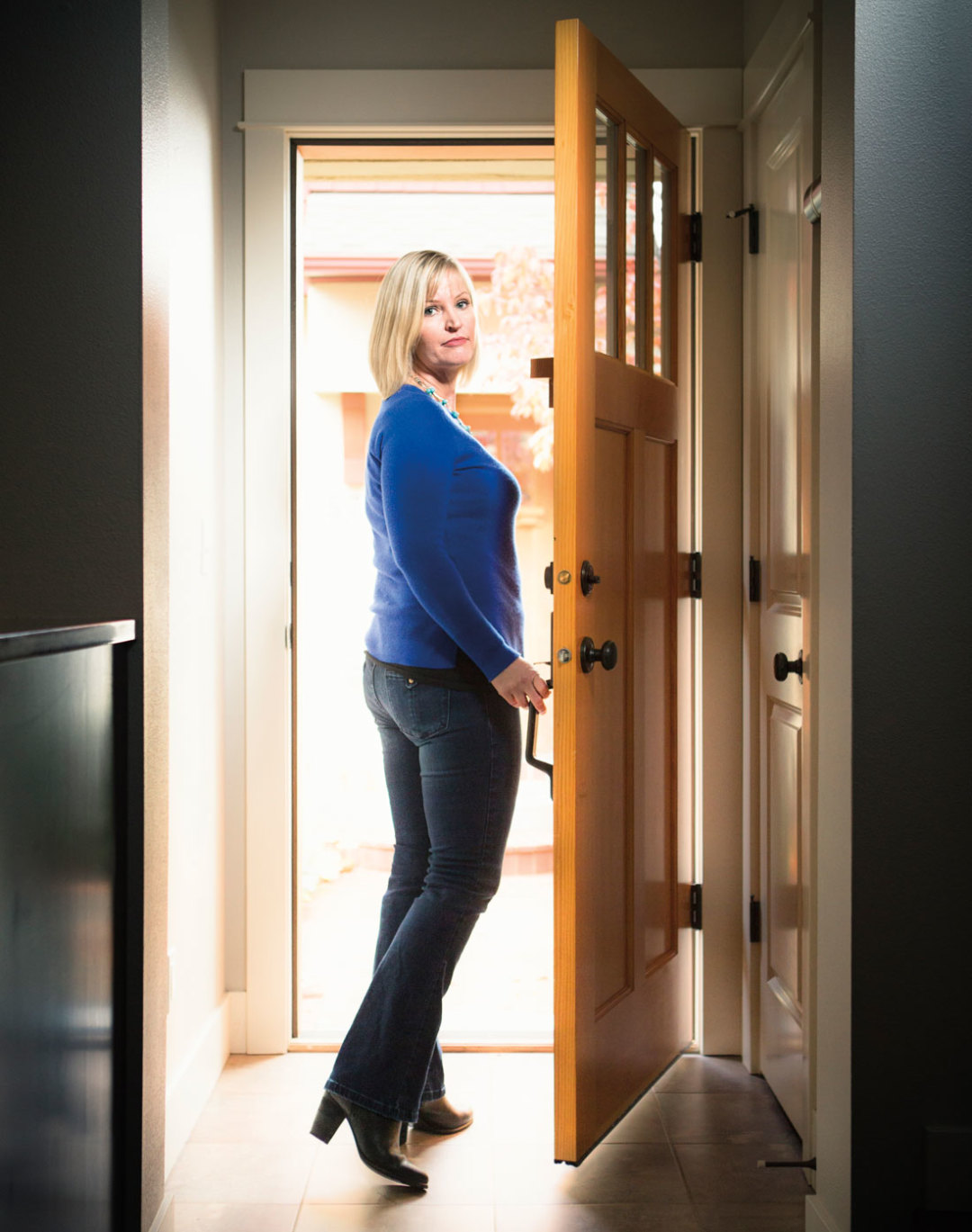Ruth Wariner’s Harrowing Survival Story

Image: Terry Manier
Her mother’s fourth child and her father’s 39th, Ruth Wariner spent her childhood in a polygamist Mormon colony in Chihuahua, Mexico. She helped raise six younger siblings in a home with half-finished walls and no bathroom while enduring years of sexual abuse at the hands of her stepfather, Lane. After a freak accident was followed by new revelations about her stepfather, she fled to the US with her siblings in 1987. Now, she’s a happily married high school Spanish teacher living in Lake Oswego. In The Sound of Gravel, out this month, Wariner tells the gripping—and often heartbreaking—story of her youth.
I’m reluctant when I meet people in social situations, at cocktail parties, and they ask the details of my life. It’s so hard to talk about those things in casual conversation: “Oh yeah, my dad had nine wives and 42 kids.”
It was like 1920s pioneer-style living, growing up. For the first few years we had an outhouse. The electricity came eventually, but it was so poorly done. A lot of the responsibility fell on us older kids. I remember going to the Mexican public school and not knowing any Spanish. And that’s when I found out about my half-sisters. The teacher introduced us. My dad died when I was so young and none of the wives lived together. So I didn’t know a lot of my siblings until I started going to school.
I first told my mom I was being abused when I was 8. It was my first heartbreak. I expected my mother to step up because she was a really nice, good person. So when she made the choice to stay with Lane, it was devastating. I struggle with a lot of resentment toward the whole town—for not standing up for me, or for the other girls he abused. They knew, but nothing was ever done, and he was let back in over and over again.
Writing about my mom actually helped me have a lot of compassion for her. She was kind of a victim of her own belief system. I’m five years older now than she was when she died. She had 10 kids, three disabled, and had already been widowed. She was 17 when she got married to the prophet of the church—my dad—who at the time was 42 and had nine wives over the course of his life.
After my mom died, I found out that my older brother Luke was being abused. I knew no one was going to support me there because Lane was the man. I was a 15-year-old girl—I had no power. I had to get away. There was no way I could protect my sisters in that situation. And it was healing to be able to stand up for them in a way that I hadn’t been able to stand up for myself. It happened, I found out about it, and we were out of there the next day.
We arrived in the States and lived with my grandmother in California. We were there for four years, and then my siblings and I moved up to Grants Pass and stayed with my mom’s youngest sister. Then I ended up buying a house at 19 with my three younger sisters, and I raised them. We survived on student loans and welfare.
My sisters didn’t have any memory of my mom at all. They were eight months old, 2, and 4 when we left. I really wanted to write the story, for their family history, so they understood why we grew up without parents. I mostly did it for them. And it was definitely meant as a tribute, to my mom and the older brother they lost, so that my family could know them.
I’d like to write another book. I’d love to tell the story of when I was raising my sisters and learning to become a solid adult outside the church I was raised in. It’s so important, especially as women, to understand that who we are as human beings is stronger than our circumstances—that what we have inside of us is more powerful than a shitty childhood.




